CSW 2025
Computer Science Workshop 2025
6th Edition
May 29th and 30th, 2025
Room 505, DIBRIS (Valletta Puggia), Università di GenovaVia Dodecaneso 35, Genoa
with the contribution of the University of Genoa
Flyer
Motivation and goals
The DoCS group is pleased to announce the sixth edition of the Computer Science Workshop (CSW), which will take place this year on May 29th and 30th at the Valletta Puggia building of the DIBRIS department, at the University of Genoa.
Computer Science is a rapidly evolving field, constantly driven by innovation and interdisciplinary challenges. At the University of Genoa, our department is active in a wide range of research areas, including Virtual and Augmented Reality, Multi-Agent Systems, Data Management, Geometric Modeling, Cybersecurity, Machine Learning, Programming Languages, Logic, Computer Vision, Software Engineering, Artificial Intelligence, and more.
The annual Computer Science Workshop is a key moment for our community to share ideas, present ongoing research, and foster collaborations. This year, we chose to maintain the successful two-day format introduced in last year’s edition, while also introducing new types of activities alongside the traditional keynote talks. These additions are meant to bring a fresh perspective to the event, encourage greater interaction, and keep the program diverse and engaging for all participants.
The Workshop remains a valuable opportunity for students to get in touch with cutting-edge research and for researchers to explore new connections—within and beyond the boundaries of their own fields. However, this year’s edition pays special attention to Master’s students, with the aim of encouraging their engagement with the world of research and the department’s ongoing activities. Students interested in obtaining AUK credits for attending the event can find all the relevant information in the dedicated section.
Activities
Keynotes, Hands-on, Panel
This year’s edition will feature activities delivered by distinguished speakers:
- Annalisa Barla, University of Genova
- Matteo Dell’Amico, University of Genoa
- Jesús Gutiérrez, Universidad Politécnica de Madrid
- Riccardo Marin, Technical University of Munich
- Moreno Razzoli (Morrolinux) Morrolinux.it
- Raffaele Rialdi, Microsoft MVP, Vevy Europe, DotNetLiguria
- Lorenzo Rosasco, University of Genoa
- Danilo Pani, University of Cagliari
Additional information about the speakers and their activities can be found in the program section.
PhD Poster Session
During lunch of the second day of the event, Computer Science and Systems Engineering PhD students will have a poster session to present their work to participants and speakers. The poster session will be held during the lunch of Friday, May 30, in room 210, 2nd floor.
Posters will be set up in the room during the morning. Our staff will handle the setup of those printed by us. If you plan to print your poster in some other way, please be sure to hang it in the designated area within lunch time.
You can find the official CSW poster template here. Please submit your poster by emailing it to either Lorenzo or Matteo no later than May 25. This will allow us to handle the printing and ensure your poster is set up and ready for the session.
Competitive Debate
The final session of CSW 2025 will feature a competitive debate on topics related to AI and ethics. The debate teams will be composed of Master’s students in Computer Science who have registered for the acquisition of AUK credits. The debate will be evaluated by a jury composed of a PhD student, a professor, and a researcher, who will assess the clarity, coherence, and depth of the arguments presented.
Participants will be added to a dedicated Microsoft Teams channel, where all logistical information, preparation materials, and the official debate protocol (rules) will be shared. A coaching session will take place on May 27 to support students in preparing for the event.
Program
This year’s edition of the Computer Science Workshop will take place over the course of two days: Thursday, May 29, with activities scheduled in the afternoon, and Friday, May 30, featuring a full-day program.
A variety of sessions and formats will follow one another throughout the event, offering opportunities for in-depth discussion, exchange of ideas, and discovery. The full schedule is outlined below, with details provided for each day.
— Thursday, May 29 —
Registration
- Start time: 1:30 PM
- Duration: 1 hour
- Location: Room 322 (in front of conference room), 3rd floor
A registration booth will be arranged at the 3rd floor. There will be a registration desk where you can pick up your badge.
Welcome
- Start time: 2:00 PM
- Duration: 30 minutes
- Location: Room 322 (conference room), 3rd floor
Welcome and introduction to the CSW. The DoCS team will also present itself and their activities.
Keynote - Evaluating (quality of) user experiences with immersive technologies by Jesús Gutiérrez
- Start time: 2:30 PM
- Duration: 1 hour
- Location: Room 322 (conference room), 3rd floor
Abstract
The emergence of immersive media technologies is providing to the users new interactive experiences, which allow a more natural and complete exploration of the represented content in comparison with previous audiovisual technologies. These innovative solutions entail novel perceptual and technical factors that should be extensively studied to support an adequate and inclusive development of technology so it meets the expectations and demands of all users. In this sense, this talk provides an overview on the evaluation of the quality of user experiences with immersive technologies, primarily by subjective tests. Specifically, a set of examples will be presented, covering the evaluation of different use cases of immersive technologies with different level of interaction (e.g., 360-degree video, virtual reality, immersive communications, etc.).
Jesús’ bio
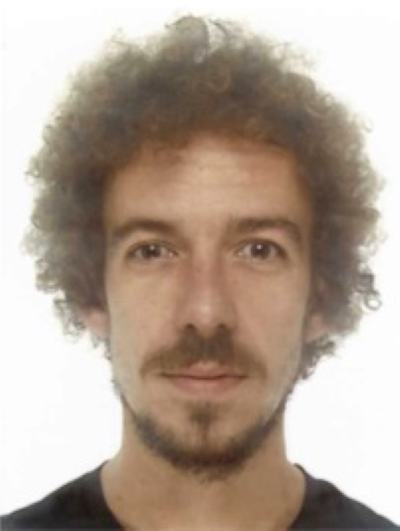 Jesús Gutiérrez is Associate Professor at the Grupo de Tratamiento de Imágenes (GTI, Image Processing Group) of the Universidad Politécnica de Madrid (UPM), Spain. He received the Telecommunication Engineering degree from the Universidad Politécnica de Valencia (Spain) in 2008, the master’s degree in Communications Technologies and Systems in 2011, and the Ph.D. degree in Telecommunication in 2016, both from the UPM. From 2016 to 2019 he was a Marie Curie post-doctoral researcher at the Image, Perception and Interaction (IPI) group of the Université de Nantes (France). From 2020 to 2022 he was a Juan de la Cierva post-doctoral researcher at GTI of the UPM and then he served as Assistant Professor until 2024. His research interests are in the area of image and video processing, evaluation of user quality of experience, immersive media technologies, and visual attention and human perception. Currently, he is the chair of Immersive Media Group (IMG) of the Video Quality Experts Group (VQEG).
Jesús Gutiérrez is Associate Professor at the Grupo de Tratamiento de Imágenes (GTI, Image Processing Group) of the Universidad Politécnica de Madrid (UPM), Spain. He received the Telecommunication Engineering degree from the Universidad Politécnica de Valencia (Spain) in 2008, the master’s degree in Communications Technologies and Systems in 2011, and the Ph.D. degree in Telecommunication in 2016, both from the UPM. From 2016 to 2019 he was a Marie Curie post-doctoral researcher at the Image, Perception and Interaction (IPI) group of the Université de Nantes (France). From 2020 to 2022 he was a Juan de la Cierva post-doctoral researcher at GTI of the UPM and then he served as Assistant Professor until 2024. His research interests are in the area of image and video processing, evaluation of user quality of experience, immersive media technologies, and visual attention and human perception. Currently, he is the chair of Immersive Media Group (IMG) of the Video Quality Experts Group (VQEG).
Coffee Break (catered)
- Start time: 3:30 PM
- Duration: 15 minutes
- Location: TBD, 3rd floor
A Professor, a YouTuber, and an MVP Walk into a Panel… - Open Source from Three Very Different Angles by Matteo Dell’Amico, Moreno Razzoli (Morrolinux), Raffaele Rialdi
- Start time: 3:45 PM
- Duration: 1 hour and 15 minutes
- Location: Room 322 (conference room), 3rd floor
Abstract
What happens when a university professor, a YouTuber, and a Microsoft MVP sit down to talk open source? You get a lively conversation that spans code, community, ethics, and business. This panel dives into the role of open source in powering today’s AI, explores the challenges of security and sustainability, and questions whether open source is still a rebellious act, or just business as usual. From academic recognition to hardware transparency, the discussion will offer unique perspectives on what openness really means today, and why it still matters
Panelists’ bios
Matteo Dell’Amico
 Matteo Dell’Amico is an Associate Professor at DIBRIS. His main research interests are distributed systems and cybersecurity. In the past, he conducted research in France at EURECOM and Symantec/NortonLifeLock.
Matteo Dell’Amico is an Associate Professor at DIBRIS. His main research interests are distributed systems and cybersecurity. In the past, he conducted research in France at EURECOM and Symantec/NortonLifeLock.
Moreno Razzoli (Morrolinux)
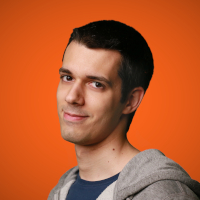 Moreno Razzoli holds a master degree in Computer Science and several certifications in the field of free and open-source software, including Linux LPI, CompTIA Linux+, and SUSE CLA. He is also an authorized Training Partner of the Linux Professional Institute. An active member of the open-source community for many years, he has developed numerous personal projects and contributed to several existing ones on GitHub. Since 2008, he has been creating educational content on YouTube, focused on technical outreach and computer science training.
Moreno Razzoli holds a master degree in Computer Science and several certifications in the field of free and open-source software, including Linux LPI, CompTIA Linux+, and SUSE CLA. He is also an authorized Training Partner of the Linux Professional Institute. An active member of the open-source community for many years, he has developed numerous personal projects and contributed to several existing ones on GitHub. Since 2008, he has been creating educational content on YouTube, focused on technical outreach and computer science training.
Raffaele Rialdi
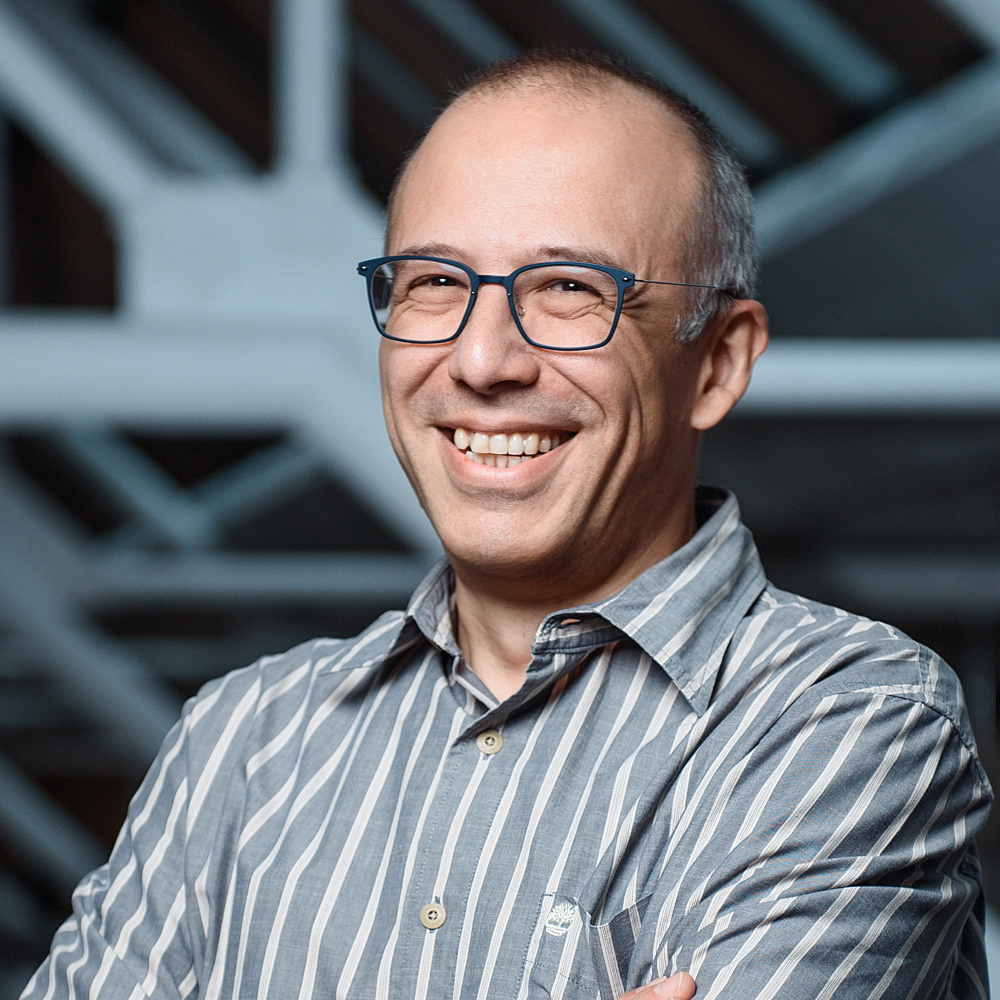 Raffaele Rialdi holds a degree in Electronic Engineering, is registered with the Genoa Order of Engineers, and is a member of its ICT commission. He has been professionally involved in software design and development since 1987. He has been a Microsoft MVP since 2003 and participates in weekly meetings with Microsoft teams in Redmond, working on development technologies with access to the Windows source code. He is also the president of the DotNetLiguria community, through which he organizes free events focused on software development. He currently works as a consultant, conference speaker, course instructor, and leads a development team at Vevy Europe, where he serves as Senior Software Architect and Developer.
Raffaele Rialdi holds a degree in Electronic Engineering, is registered with the Genoa Order of Engineers, and is a member of its ICT commission. He has been professionally involved in software design and development since 1987. He has been a Microsoft MVP since 2003 and participates in weekly meetings with Microsoft teams in Redmond, working on development technologies with access to the Windows source code. He is also the president of the DotNetLiguria community, through which he organizes free events focused on software development. He currently works as a consultant, conference speaker, course instructor, and leads a development team at Vevy Europe, where he serves as Senior Software Architect and Developer.
End of Day
- Start time: 5:00 PM
- Duration: 15 minutes
- Location: Room 322 (conference room), 3rd floor
Final remarks and thanks. This is the moment when team roles for Friday’s activity will be announced.
— Friday, May 30 —
Registration
- Start time: 9:00 AM
- Duration: 1 hour
- Location: DIBRIS corridor, 5th floor
A registration booth will be arranged at the 5th floor. There will be a registration desk where you can pick up your badge.
Welcome + To PhD or Not to PhD? by Lorenzo Rosasco
- Start time: 9:15 AM
- Duration: 30 minutes
- Location: Room 505, 5th floor
After a quick introduction to the second day of the CSW, we will welcome Lorenzo Rosasco, who will give a brief overview of the life of a researcher.
Lorenzo’s Bio
 Lorenzo Rosasco is a professor at the University of Genova. He is a research affiliate at the Massachusetts Institute of Technology (MIT) and a visiting scientist at the Italian Technological Institute (IIT). He is a founder of the Machine Learning Genova center (MaLGa) and the Laboratory for Computational and Statistical Learning, focusing on the theory, algorithms, and applications of machine learning. He obtained his PhD in 2006 from the University of Genova and was a visiting student at the Center for Biological and Computational Learning at MIT, the Toyota Technological Institute at Chicago (TTI-Chicago), and the Johann Radon Institute for Computational and Applied Mathematics. From 2006 to 2013, he worked as a postdoc and research scientist at the Brain and Cognitive Sciences Department at MIT. He is an Ellis fellow and serves as the co-director of the “Theory, Algorithms and Computations of Modern Learning Systems” program as well as the Ellis Genoa unit. Lorenzo has received several awards, including an ERC consolidator grant.
Lorenzo Rosasco is a professor at the University of Genova. He is a research affiliate at the Massachusetts Institute of Technology (MIT) and a visiting scientist at the Italian Technological Institute (IIT). He is a founder of the Machine Learning Genova center (MaLGa) and the Laboratory for Computational and Statistical Learning, focusing on the theory, algorithms, and applications of machine learning. He obtained his PhD in 2006 from the University of Genova and was a visiting student at the Center for Biological and Computational Learning at MIT, the Toyota Technological Institute at Chicago (TTI-Chicago), and the Johann Radon Institute for Computational and Applied Mathematics. From 2006 to 2013, he worked as a postdoc and research scientist at the Brain and Cognitive Sciences Department at MIT. He is an Ellis fellow and serves as the co-director of the “Theory, Algorithms and Computations of Modern Learning Systems” program as well as the Ellis Genoa unit. Lorenzo has received several awards, including an ERC consolidator grant.
Keynote - AI for All? Navigating Ethical Frontiers in Artificial Intelligence by Annalisa Barla
- Start time: 9:45 AM
- Duration: 1 hour
- Location: Room 505, 5th floor
Abstract
Artificial intelligence promises to revolutionize our world, but as AI systems become deeply embedded in our lives – deciding who gets a loan, diagnosing diseases, or shaping our news – critical ethical questions arise. This talk moves beyond surface-level discussions of bias in algorithms to confront the deeper, often invisible, ethical challenges of real-world AI deployment. We’ll explore how bias manifests not just in data, but in the very processes of annotation and representation, revealing the limitations of current techniques and illustrating how regulations may fix that.
Annalisa’s bio
 Annalisa Barla received the master’s degree in Physics and the PhD degree in Computer Science from the University of Genoa, Genoa, Italy, in 2001 and 2005, respectively, working on kernel functions engineering for regularization methods in machine learning applied to image content understanding. She is currently an associate professor of computer science with the University of Genoa. Her main areas of interest are in the field of machine learning spanning from the study of robust and reproducible variable selection methods to the understanding and visualization of complex structured network data.
Annalisa Barla received the master’s degree in Physics and the PhD degree in Computer Science from the University of Genoa, Genoa, Italy, in 2001 and 2005, respectively, working on kernel functions engineering for regularization methods in machine learning applied to image content understanding. She is currently an associate professor of computer science with the University of Genoa. Her main areas of interest are in the field of machine learning spanning from the study of robust and reproducible variable selection methods to the understanding and visualization of complex structured network data.
Coffee Break (catered)
- Start time: 10:45 AM
- Duration: 15 minutes
- Location: 5th floor
Hands-On Session - From Points to Avatars: Processing 3D Data at the time of Metaverse by Riccardo Marin
- Start time: 11:00 AM
- Duration: 2 hours
- Location: Room 505, 5th floor
Basic knowledge of Python, fundamentals of deep learning. A notebook with a working Python environment is recommended.
Abstract
As humans, our 3D perception of the world is as natural as crucial. Understanding spatial relations, finding differences and similarities, and interacting with objects is at the core of almost every daily activity. But how can such intelligence be coded into a computer? With recent technological advances in 3D shape acquisitions and processing, the Computer Vision, Graphics, and Artificial Intelligence fields look for methods and representations that ease the reasoning on this structured data. Developing systems that perceive the physical world as we do would be terrific for all sorts of applications, from medicine to entertainment, from archeology to social humanities. But reasoning about geometry is not just about objects – it is also about us. At the time of virtual and augmented reality, understanding 3D data is fundamental for a fair and comprehensive representation of our digitized identities. In this lecture, we will introduce the core ideas for working with geometrical information, discussing its role in (geometrical) deep learning, and provide the audience with code to visualize and process 3D data.
Riccardo’s bio
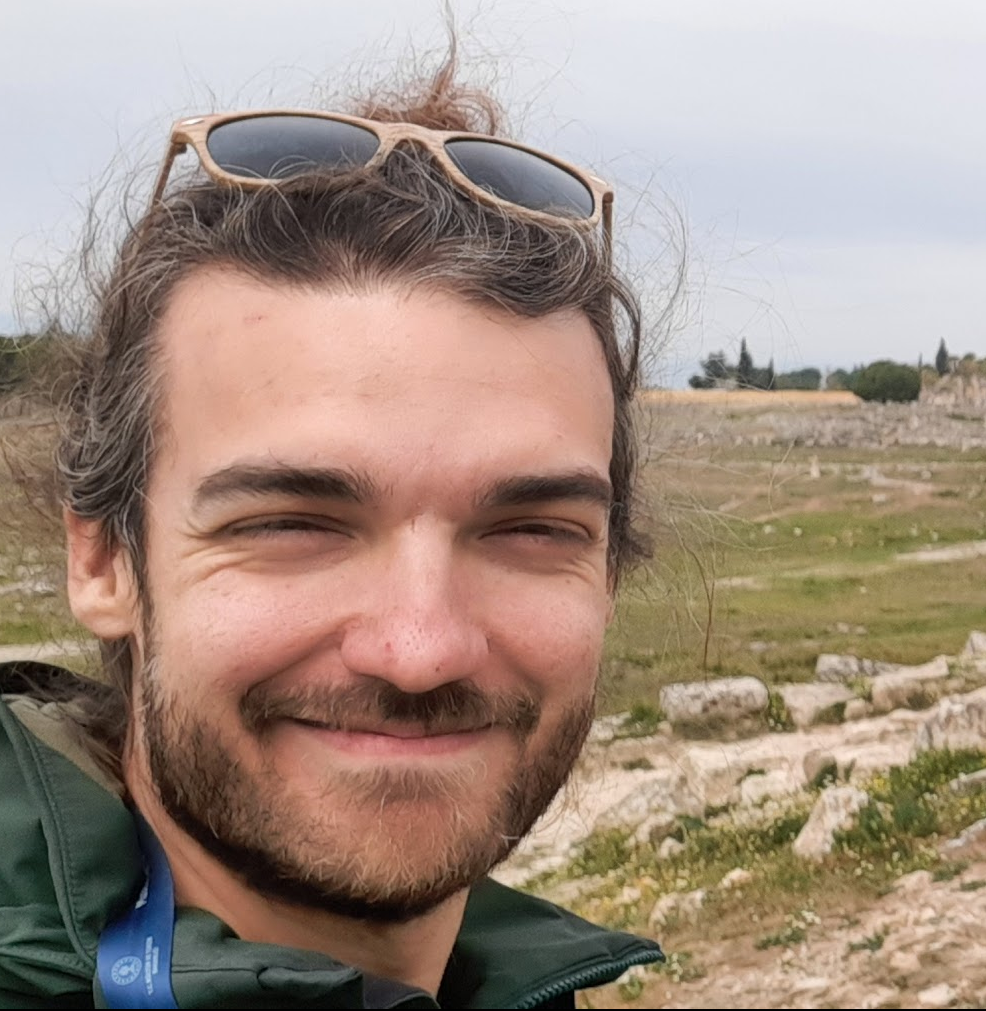 Riccardo is a postdoc researcher at the Computer Vision Group of the Technical University of Munich (TUM), part of the Munich Center for Machine Learning (MCML), and member of the European Laboratory for Learning and Intelligent Systems (ELLIS). Previously, he has been a Marie-Curie postdoc at the University of Tubingen, and a postdoc at Sapienza University of Rome. Riccardo obtained his PhD from University of Verona, collecting the Best PhD Thesis Award in Computer Graphics from the Italian Chapter of EuroGraphics. His reasearch focus on 3D Geometry Processing, Spectral Shape Analysis, and in particular on Shape Matching and Virtual Humans applications.
Riccardo is a postdoc researcher at the Computer Vision Group of the Technical University of Munich (TUM), part of the Munich Center for Machine Learning (MCML), and member of the European Laboratory for Learning and Intelligent Systems (ELLIS). Previously, he has been a Marie-Curie postdoc at the University of Tubingen, and a postdoc at Sapienza University of Rome. Riccardo obtained his PhD from University of Verona, collecting the Best PhD Thesis Award in Computer Graphics from the Italian Chapter of EuroGraphics. His reasearch focus on 3D Geometry Processing, Spectral Shape Analysis, and in particular on Shape Matching and Virtual Humans applications.
Lunch (catered) + Poster Session
- Start time: 1:00 PM
- Duration: 1 hour
- Location: Room 210, 2nd floor
Hands-On Session - Basic biomedical signal processing case studies: fundamentals, traps, and tricks by Danilo Pani
- Start time: 2:00 PM
- Duration: 2 hours
- Location: Room 505, 5th floor
Basic knowledge of Matlab. A notebook with a MATLAB installation is recommended, equipped with Statistical Toolbox, Signal Processing Toolbox, Curve Fitting Toolbox, and Wavelet Toolbox.
Unige offers a free education license for MATLAB, available at this page logging in using UnigePass credentials.
Abstract
In this hands-on session, you’ll dive into biomedical signals that are primarily encountered in non-clinical applications, such as human-computer interfaces, neuromarketing, and biofeedback. We’ll begin by refreshing the fundamentals of signal analysis, including Fourier analysis and sampling. Then, using a case-study approach, we’ll process common biomedical signals, aiming to uncover the main traps and the tricks to overcome them. We’ll also explore how one signal can be derived from another by exploiting the interrelations between physiological systems. Due to practical considerations and time constraints, we will mainly focus on electrophysiological signals (ExG). This journey will start in the time domain and move into the frequency and Z domains. We will use MATLAB to design and apply signal analysis and processing techniques. You can download the material used in this session here.
Danilo’s bio
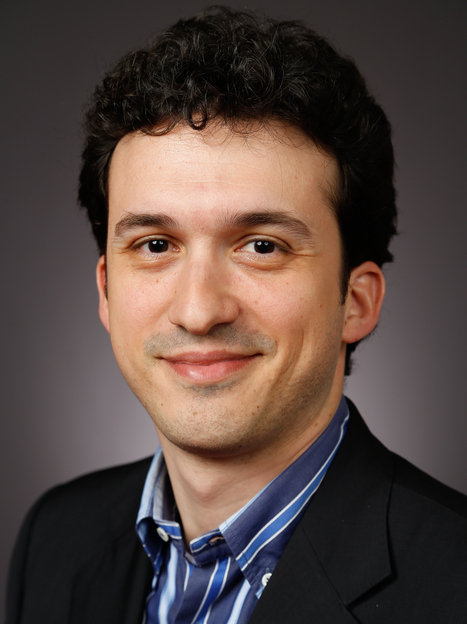 Prof. Danilo Pani is Associate professor of Biomedical Engineering at the Department of Electrical and Electronic Engineering of the University of Cagliari, where he is coordinator of the integrated BSc and MSc program in Biomedical Engineering. He teaches biomedical signal processing (basic and advanced) and biomedical instrumentation. He leads the Medical Devices and Signal Processing (MeDSP.it), a biomedical engineering lab specialized in advanced biomedical signal processing, applied machine learning, and the development of medical devices and systems.
Prof. Danilo Pani is Associate professor of Biomedical Engineering at the Department of Electrical and Electronic Engineering of the University of Cagliari, where he is coordinator of the integrated BSc and MSc program in Biomedical Engineering. He teaches biomedical signal processing (basic and advanced) and biomedical instrumentation. He leads the Medical Devices and Signal Processing (MeDSP.it), a biomedical engineering lab specialized in advanced biomedical signal processing, applied machine learning, and the development of medical devices and systems.
His research interests include cardiac electrophysiology, fetal electrocardiography, digital biomarkers, wearable sensors and systems for health monitoring and advanced human-computer interfaces, neurorehabilitation, and telemedicine. Prof. Pani is a senior member of the IEEE. He has been co-founder and treasurer of the Italian Chapter of the IEEE Sensors Council and member of the Board of Directors of the Italian National Bioengineering Group (GNB). He is appointed expert in the UNINFO Commission for Health Informatics and Italian expert in the Technical Committee 251 of CEN, Working Group 2, and member of IEEE EMB TC on Therapeutic & Diagnostic Systems and Technologies. He is author of more than 140 indexed scientific publications and 6 patents.
Coffee Break (catered)
- Start time: 4:00 PM
- Duration: 15 minutes
- Location: 5th floor
Competitive Debate - AI and Ethics
- Start time: 4:15 PM
- Duration: 1 hour
- Location: Room 505, 5th floor
Master’s students will engage in a competitive debate focused on the ethical implications of AI. Two teams of students will compete, adhering to a specific protocol, each defending distinct positions on a particular motion related to AI and ethics.
The event will be public, allowing the audience to attend and observe the exchange. After the formal debate is over, the audience will have the opportunity to interact with the teams, fostering an engaging environment for discussion and exploration of the defended positions.
End of Day
- Start time: 5:30 PM
- Duration: 15 minutes
- Location: Room 505, 5th floor
Closing of the event, acknowledgments, and farewells.
Additional information
Participation is free of charge and open to everyone, but registration is required. You can register by clicking on the button under the CSW logo at the top of the page, or on this link.
Lunch and coffee breaks will be offered to all participants.
Additional Useful Knowledge (AUK) credits for Master Students
This year’s edition has also been designed with a special focus on Master’s students, with the goal of bringing them closer to the world of research—both in general and with particular attention to the work carried out by the department’s research groups, faculty members, and PhD students.
To this end, students whose study plan includes the acquisition of AUK credits will be eligible to receive 2 AUK credits for participating in the event.
Students will be required to demonstrate their attendance, and credits will be awarded only to those who attend all activities, with the exception of at most one session. Participation in the debate is mandatory.
After the event, eligible students will be notified via email regarding the proper registration of the acquired credits.

